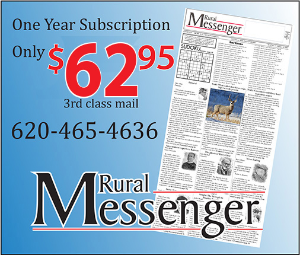K-State horticulture instructor says a vertical garden offers many benefits in addition to needing less space
Kansas State University horticulture instructor Cynthia Domenghini says home gardeners can expand garden space...
Kansas NewsLatest
Turf Wars: tips to maintain lawn goals
The petite purple blooms of wild violets, often seen in lawns across Kansas this time of year, serve as a food source to bees...
Public Invited to Give, Celebrate Generosity on Match Day
As a highlight of Hutchinson Community Foundation’s 35th year of serving Reno County, Match Day, the popular day of community generosity, returns May 1...
National commodity groups call on ITC to nix herbicide duty petition
Leaders from the American Soybean Association, National Association of Wheat Growers, National Barley Growers Association, National Corn Growers Association, National Sorghum Producers and the...
CommunityLatest
The Legality of Car Sleeping in Kansas: What You Need to Know
Have you ever found yourself needing a quick nap on a road trip through Kansas? Perhaps you’re exploring Wichita’s vibrant cultural scene or traversing...
Histoplasmosis in Reno County
The Reno County Health Department has seen a few Histoplasmosis cases this year already, so they wanted to send out information about the infection...
Kansas Microbrewers have greater access to restaurants, bars and stores under new law
Gov. Laura Kelly signed a bill allowing small craft breweries to directly sell to retailers, restaurants and bars.
Kansas, like most other states, uses a...
Outdoors
Monarch butterflies just took a big hit. Midwesterners may see few of them this year
Celia Llopis-Jepsen
Kansas New Service
Butterfly enthusiasts in the eastern half of North America will have to look harder this spring and summer to spot the winged migrants that have become...
Outdoors
Topeka Angler Sets New Kansas Record for Crappie
Topeka resident, Bobby Parkhurst, was fishing at Pottawatomie State Fishing Lake No. 2 when the catch-of-a-lifetime came into contact with his lure. Little did...
Outdoors
Free Deer Tags May Cost More Than We Think
All Kansas sportsmen should be very concerned about a new bill that has been introduced in our legislature. House Bill 2079 states that the...
Outdoors
9 OF THE BEST HIKES IN KANSAS
By Roots Rated on Oct. 15, 2022
When it comes to hiking, Kansas should be on every outdoor lovers’ list. It’s the ideal place for day hikers or...




